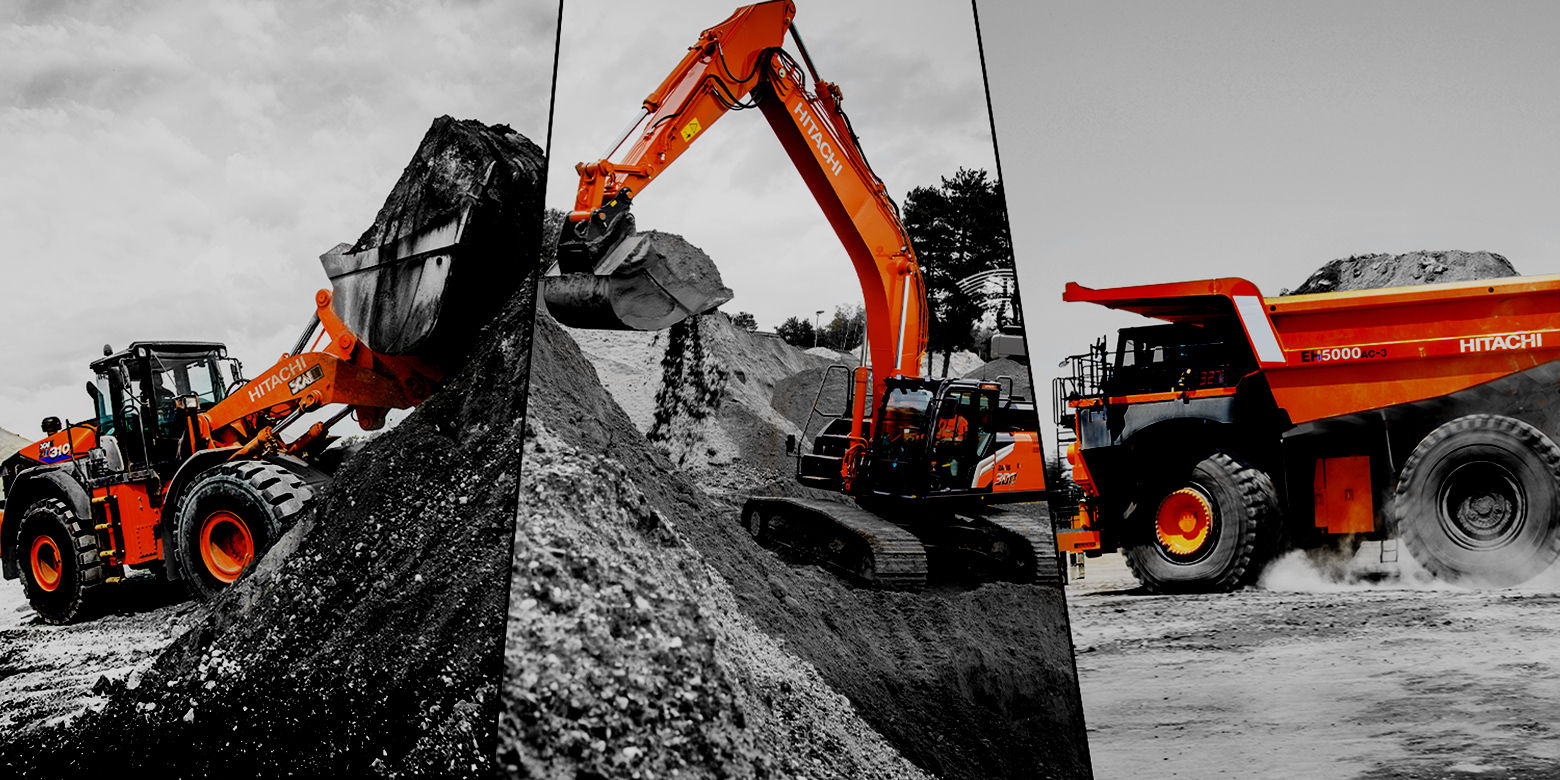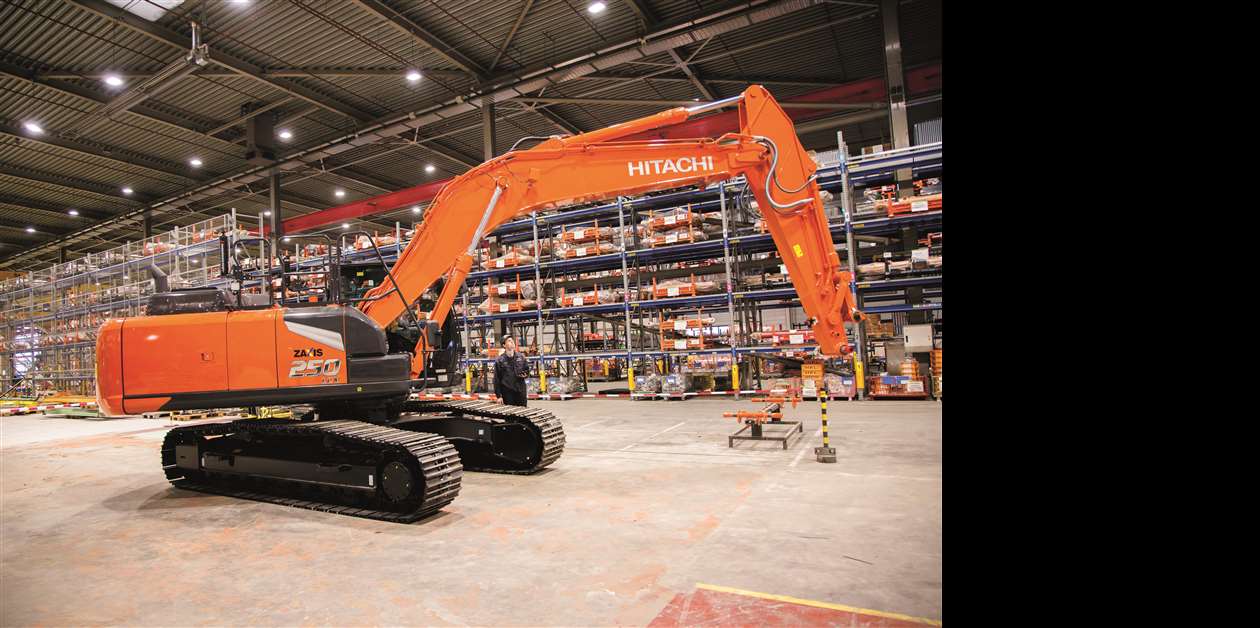Construction Equipment Rentals in Tuscaloosa AL: Everything You Required for Your Task Site
Construction Equipment Rentals in Tuscaloosa AL: Everything You Required for Your Task Site
Blog Article
Exploring the Financial Benefits of Renting Construction Equipment Compared to Possessing It Long-Term
The decision between having and leasing construction equipment is pivotal for financial management in the industry. Renting out offers prompt expense financial savings and operational adaptability, allowing firms to allot sources more efficiently. Recognizing these nuances is necessary, specifically when considering exactly how they line up with specific project needs and economic strategies.

Price Comparison: Renting Out Vs. Owning
When evaluating the financial ramifications of possessing versus renting out building devices, a detailed price contrast is necessary for making informed choices. The selection between having and renting out can considerably influence a firm's profits, and recognizing the associated expenses is vital.
Renting out construction tools commonly entails reduced upfront expenses, enabling companies to allot capital to various other operational requirements. Rental arrangements frequently consist of flexible terms, enabling firms to access advanced machinery without long-lasting commitments. This adaptability can be especially beneficial for temporary tasks or rising and fall workloads. Nevertheless, rental expenses can build up in time, possibly surpassing the cost of possession if tools is required for an extended period.
Alternatively, owning building and construction tools calls for a substantial initial investment, in addition to continuous prices such as devaluation, funding, and insurance policy. While ownership can result in long-term savings, it likewise locks up funding and may not provide the same degree of adaptability as renting. Additionally, possessing tools requires a commitment to its application, which might not always align with task needs.
Eventually, the decision to have or lease should be based on a detailed evaluation of particular project demands, monetary ability, and lasting calculated goals.

Upkeep Costs and Responsibilities
The choice between renting out and possessing building and construction devices not only entails economic considerations yet additionally includes ongoing upkeep expenses and duties. Possessing equipment needs a considerable dedication to its upkeep, that includes regular assessments, fixings, and possible upgrades. These obligations can swiftly collect, bring about unanticipated costs that can stress a budget plan.
On the other hand, when renting out tools, maintenance is generally the duty of the rental firm. This plan permits contractors to stay clear of the financial burden related to deterioration, along with the logistical difficulties of scheduling fixings. Rental contracts often include arrangements for upkeep, implying that contractors can concentrate on completing jobs as opposed to fretting concerning tools condition.
Moreover, the diverse variety of devices offered for rent makes it possible for firms to pick the latest models with advanced technology, which can boost performance and productivity - scissor lift rental in Tuscaloosa Al. By going with leasings, businesses can prevent the lasting obligation of tools depreciation and the associated upkeep migraines. Ultimately, assessing upkeep expenses and obligations is crucial for making a notified decision concerning whether to have or rent construction devices, substantially influencing total job prices and functional performance

Depreciation Effect On Ownership

A considerable factor to consider in the choice to have construction devices is the impact of depreciation on general possession costs. Depreciation stands for the decline in worth of the devices over time, influenced by aspects such as usage, deterioration, and innovations in innovation. As equipment ages, its market worth diminishes, which can substantially influence the owner's financial setting when it comes time to offer or trade the tools.
For building business, this depreciation can convert to substantial losses if the tools is not utilized to its maximum potential or if it comes to be outdated. Owners should represent depreciation in their financial estimates, which can lead to higher total costs contrasted to renting. Furthermore, the tax implications of depreciation can be complex; while it might offer some tax advantages, these are typically offset by the fact of reduced resale value.
Inevitably, the burden of depreciation stresses the significance of comprehending the long-term financial dedication associated with possessing building tools. Firms need to very carefully evaluate how frequently they will utilize the devices and the prospective monetary effect of depreciation to make an enlightened choice about possession versus renting.
Economic Adaptability of Renting Out
Renting out construction devices offers considerable financial adaptability, allowing companies to allocate sources more successfully. This versatility is particularly important in a sector defined by varying job needs and varying work. By choosing to rent, businesses can avoid the substantial resources outlay required for purchasing equipment, maintaining capital for various other functional demands.
In addition, renting out devices allows business to tailor their equipment choices to details task demands without the lasting dedication related to possession. This means that organizations can quickly scale their equipment inventory up or down based upon anticipated and current task needs. Subsequently, this adaptability minimizes the risk of over-investment in equipment that may end up being underutilized or outdated with construction crane price time.
An additional economic advantage of renting out is the possibility for tax advantages. Rental payments are often thought about operating costs, permitting prompt tax reductions, unlike depreciation address on owned devices, which is topped several years. scissor lift rental in Tuscaloosa Al. This instant expense acknowledgment can even more boost a firm's money setting
Long-Term Job Factors To Consider
When examining the long-lasting requirements of a construction organization, the decision between possessing and renting out tools becomes extra complicated. For jobs with extensive timelines, buying devices might appear beneficial due to the possibility for lower overall expenses.
In addition, technological developments pose a substantial factor to consider. The building sector is developing rapidly, with new devices offering improved performance and safety functions. Renting out permits companies to access the current modern technology without committing to the high ahead of time costs related to purchasing. This versatility is particularly useful for companies that deal with diverse tasks requiring different kinds of devices.
Furthermore, economic security plays a critical function. Owning devices often entails significant capital financial investment and devaluation problems, while leasing enables even more predictable budgeting and capital. Ultimately, the choice in between renting and having must be aligned with the critical objectives of the building company, taking right into account both existing and expected task demands.
Final Thought
In verdict, renting building devices uses considerable monetary benefits over lasting ownership. The lessened upfront costs, removal of upkeep obligations, and evasion of devaluation contribute to enhanced cash money flow and economic flexibility. scissor lift rental in Tuscaloosa Al. Furthermore, rental settlements function as prompt tax obligation reductions, better benefiting service providers. Eventually, the choice to why not check here rent out instead than own aligns with the vibrant nature of building tasks, permitting for adaptability and accessibility to the most up to date equipment without the monetary burdens associated with possession.
As devices ages, its market worth diminishes, which can significantly influence the owner's economic setting when it comes time to market or trade the devices.
Leasing building and construction equipment uses substantial economic adaptability, permitting firms to designate sources much more efficiently.Furthermore, renting out tools makes it possible for business to customize their equipment options to specific job needs without the long-term dedication connected with possession.In verdict, leasing construction tools uses significant financial benefits over long-term ownership. Inevitably, the decision to rent out instead than own aligns with the vibrant nature of construction projects, allowing for flexibility and accessibility to the most current tools without the economic burdens associated with possession.
Report this page